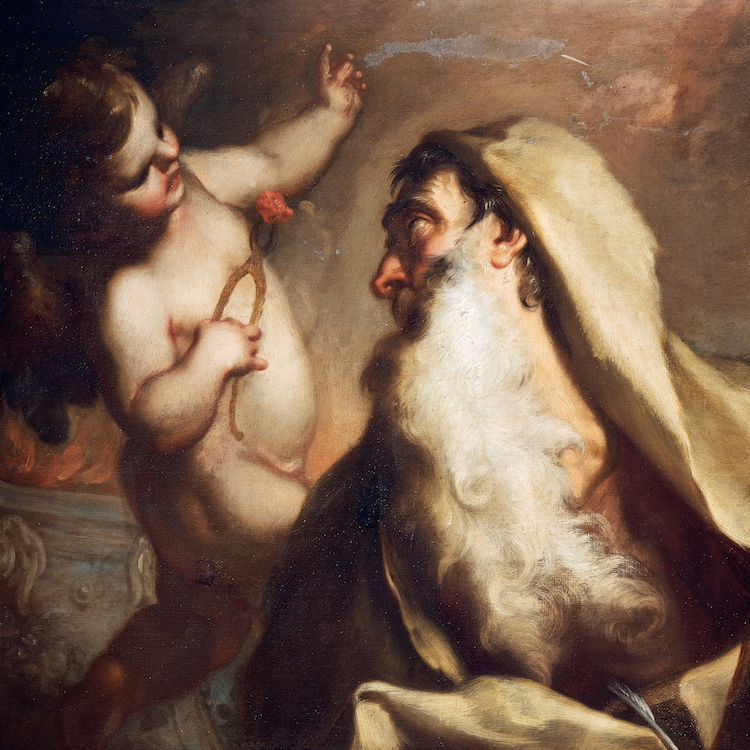Say to those whose hearts are frightened: Be strong, fear not! Here is your God; he comes with vindication; with divine recompense he comes to save you. (Isaiah 35:4)
These words of encouragement are addressed also to us because our hearts are not only frightened but also saddened, hurting, confused, and, at times, even despondent. Since the Lord is Father of all, these words are addressed to all his children across the world, but I would like to speak about the weight that they carry for and the significance that they should have on genuine Catholics in virtue of that name.
Catholic means universal. Consequently, I submit to you that genuine Catholics should be those with many more reasons to experience fright, sadness, hurts, confusion and despondency because their caring and concern should be as close as possible to being all-encompassing, universal.
A point that should be made right away deals with the good news that Isaiah’s prophecy has come to pass fully in Jesus Christ: our God among us with vindication and with divine recompense. In order to enable us to appreciate more God’s direct intervention, we should substitute the words vindication and divine recompense with this: The Father has decreed to eliminate what pains his heart and causes grief to his children and to replace all that pain with blessings that he alone can bestow.
This is evidenced by what is described in Mark’s Gospel (7:31-37): Jesus acts in a very “Catholic fashion,” in a way that fulfills Isaiah’s prophecy. He is deliberately crossing into pagan territory by mending people’s wounds in the area of Tyre and Sidon and, again, in the district of the Decapolis. So, the first attribute assigned to the term “Catholic” must be universality of concern in imitation of the Father’s care for all his children.
The second one, suggested by the same gospel passage, is the one of solidarity with the less fortunate. And people brought to him a deaf man who had a speech impediment. The obvious conclusion that we should reach by assessing how caring we really are is the incompatibility of indifference about the plight of others with true Catholic Faith. Self-absorption, isolation, and selfishness are totally incompatible with a Catholic way of life.
Yet, this is exactly where we find ourselves at times. The source of our anguish is right inside us. We can be suffering from very serious, even life-threatening, ailments. We can feel betrayed, put-down, cornered, helpless and, thus, unable to think about or care for anyone else at a particular stage of our life.
But being Catholic should help us cast all this anxiety onto the Lord and remind ourselves that we belong to the Body of Christ (Church) which, by divine design, is endowed with all channels of grace, which are God’s ways of eliminating pain and of bestowing his generous blessings. We are never alone, unless we choose to isolate ourselves.
Being Catholic, then, should give us an innate tension thrusting us towards belonging ever more fully to the Body of Christ so as to benefit from every completion of that prophecy from Isaiah. Hence, after casting our anxieties onto the Lord, we can be uplifted enough to show our concern for family members. Consider 1 Timothy 5:8— And whoever does not provide for relatives and especially family members has denied the faith and is worse than an unbeliever. However, this innate tension should also help us expand our circle of caring to include our neighbors, then fellow church members, citizens of our community, our state, our nation, the entire Catholic Church—the whole world.
Obviously, the circle of our concern varies in size from day to day, actually, from one hour to the next, depending on how we feel about ourselves. What has to be seen as very good news for us today could be the insight that anytime we dare to quell our anxiety by casting it onto the Lord, we will realize that the more people we bring to Jesus, the more we will be assured that others are bringing us to him for the same reason, hoping for the same outcome of his healing touch and bestowal of his blessings.
So, daily we should wonder whom we ought to lift up to the Lord so that he may lay his hands upon them. Well, it could be our spouse, one of our children, a relative, a parishioner, a loser in a helpless situation, a co-worker, someone whom we have repeatedly ignored or despised, an opponent, a political figure whom we loathe, an enemy, a desperate migrant seeking asylum, a whole multitude of Christians who are dispossessed, persecuted and banished from their homeland.
But our daily prayer to the Lord must be also for the countless people who are just faceless numbers on the evening news, those rotting in obscure prisons on trumped up charges, people in mission lands who live lives ruled by cruel fate because they have not yet been enlightened by the knowledge of God’s love for them, too; and the list goes on and on.
As I invite all of us to dare to break out of our shell of self-interest and bring lots of people to the Lord, I recognize that, realistically, I can hope only for sporadic, half-hearted prayers from our lips. It might be so because only a fraction of our entreaties have been answered by the Lord. We hear Isaiah 35:5-7— Then will the eyes of the blind be opened, the ears of the deaf be cleared; Then will the lame leap like a stag, then the tongue of the mute will sing. Streams will burst forth in the desert, and rivers in the steppe. The burning sands will become pools, and the thirsty ground, springs of water.
This prophecy can sound hollow. Something is amiss. But, what is it?
Our faith assures us that the very same Jesus, who cured the deaf man with a speech impediment and performed numerous miracles, is present here, among us, with the additional power and majesty of his Resurrection. And many of us have personally experienced the surprising power of prayer. And, infrequently, we learn that there is still a trickle of miracles happening to a small number of fortunate people; but it happens very, very seldom.
It seems to me that, even with a generous widening of our circle of concern, the three missing components must be a child-like faith in the love of the Father for each one of us, perseverance in our begging, and the conscious activation of the “Ephphatha” (“be opened”) command. It is the command that was given us on the day of our baptism.
It is, first of all, the deliberate and willful opening of our heart and mind to receive God’s Word, light, guidance and boundless blessings, including little and big miracles. It flows, spontaneously, then, into begging. And [they] begged him to lay his hand on him. Miracles will happen again if, in our child-like trust, we beg the Lord for the elimination of pain and the bestowal of his blessings on others. But it has to be a begging as if our life depended on a favorable outcome, and it has to come from hearts that are ready to rejoice wholeheartedly as the miracle takes place.








